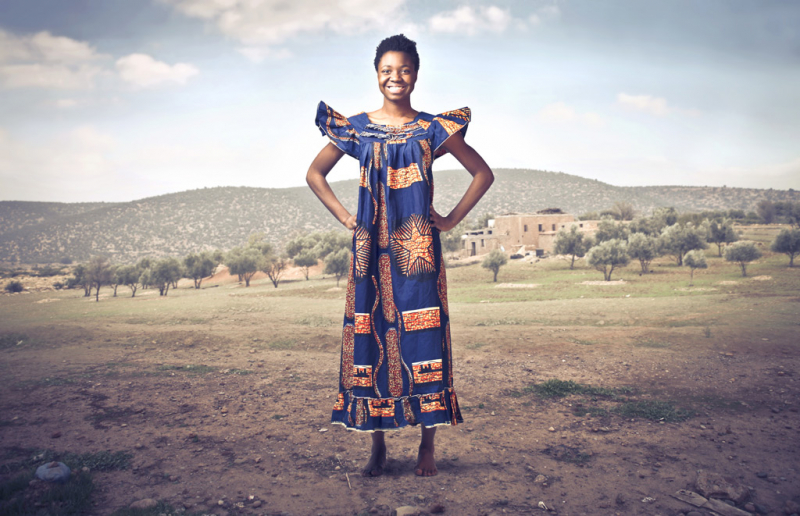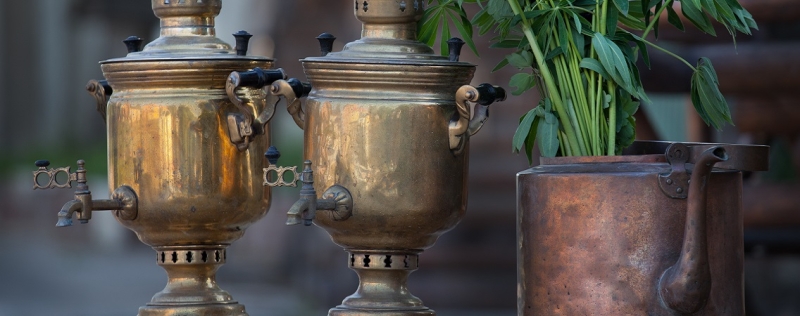
City names are often remembered thanks to aphorisms, quotes from songs and films, or folk sayings, the true meaning of which is lost. We tell you why you need to go to Karaganda and Tmutarakan, what the Tambov wolf did wrong, and what kind of wells are in Uchkuduk.
Karaganda, Kazakhstan
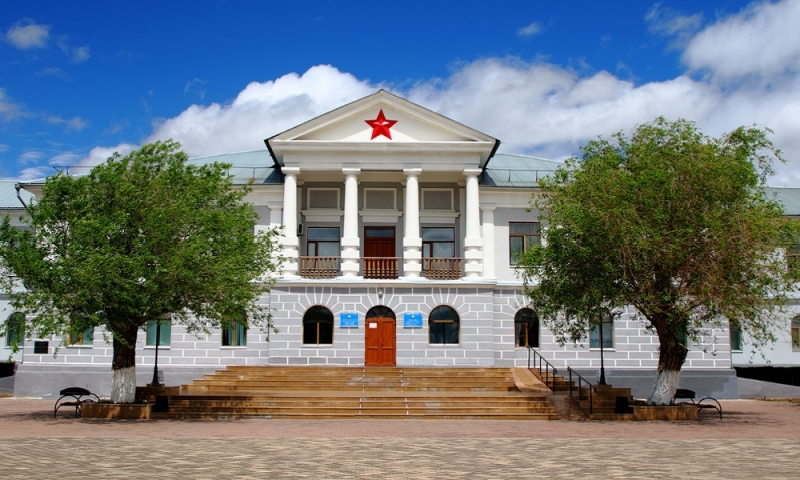
If you are asked “Where-where?”, you will probably answer “in Karaganda!” This city in the central part of Kazakhstan has important industrial, scientific and cultural significance for the entire country. One of the largest coal deposits in Kazakhstan is located here. The country’s best scientists were invited to the city for research in the field of ore mining in the middle of the 20th century. Karaganda is also known for its powerful metalworking enterprises. And Karaganda Technical University is considered one of the best in Kazakhstan. In addition, in the city you can visit the Kazakh Drama Theater named after Saken Seifullin – by the way, one of the oldest in the country!
Karlag, a large-scale correctional camp for the repressed intelligentsia, which was located here in the 20th century, left a significant mark on the history of the city. If a person said that he had returned from Karaganda, many people around him understood exactly where he was without further clarification. Today, a museum has been organized in the administrative premises of the camp, the exhibitions of which are dedicated to the difficult life of prisoners.
However, a humorous modern interpretation of the phrase about Karaganda gained popularity thanks to cinema. It was probably first heard in Albert Mkrtchyan’s film “Legitimate Marriage” (1985). But it became truly popular after it was uttered by Dmitry Kharatyan in the film “The weather is good on Deribasovskaya, or it’s raining again on Brighton Beach.” So expressively the hero answered the bandits about the whereabouts of the sheikh.
In 2011, a sculpture embodying this dialogue appeared in Karaganda. Two men stand in confusion near a road sign, and the symbol of the city, a marmot, is watching them.
Where to stay: LaCasa Hotel. The cost of daily accommodation in a standard room with breakfast is 3,900 rubles.
How to get there: by plane to Karaganda. Travel time will be 3 hours 50 minutes. In September, a plane ticket from Moscow can be bought for 14,000 rubles.*
Tambov, Tambov region
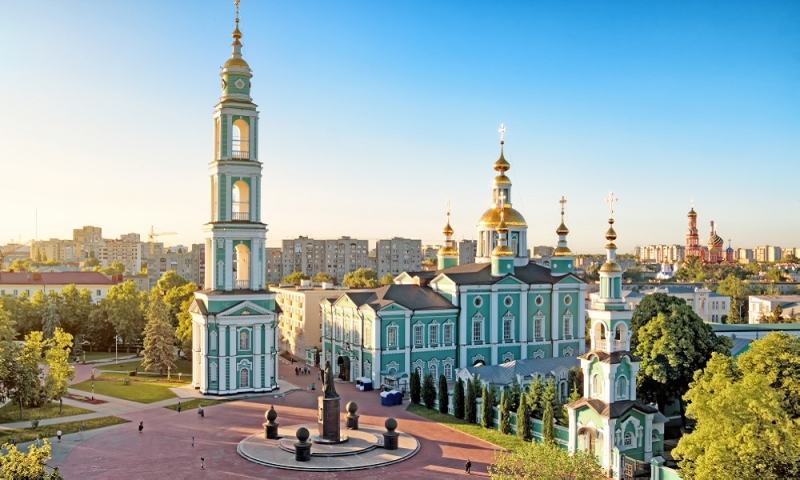
“The Tambov wolf is your comrade!” – we will say to someone with whom we do not want to deal.
There are many unflattering versions of the origin of this stable expression. Some researchers believe that the robbers who settled around Tambov were called wolves. According to another hypothesis, in the 19th century, after the end of the active agricultural season, hundreds of workers went to neighboring regions and took away earnings from the local population, for which they received the nickname “Tambov wolves.”
The phrase gained national fame thanks to two films. It was first heard in Joseph Heifitsem’s film “The Rumyantsev Case.” Later, “The Tambov wolf is your boyar!” — said a character in the comedy “Ivan Vasilyevich is changing his profession.”
Today they are trying to create a positive image for the symbol of the city. Now the version about the blessed elder Simeon comes to the fore. According to legend, at the beginning of the 19th century in the Morshansky district of the Tambov region there lived a hermit who had the gift of foresight and could communicate with animals. Simeon did not often appear on the streets of the surrounding villages, but in these rare moments, a constant companion and comrade was always noticed next to him – the gray wolf.
Today the Tambov Wolf brand is recognized as a national treasure. And along the highways at the entrances to the city there are sculptures of very cute and friendly wolves.
Where to stay: three-star park hotel “AMAKS”. The cost of a room for two is 2,200 rubles per day.
How to get there: by plane or train to Tambov. A flight from Moscow in September costs 3,500 rubles, and the travel time takes just over one hour. A train ticket can be bought for an average of 1,000 rubles.
Taman, Krasnodar region
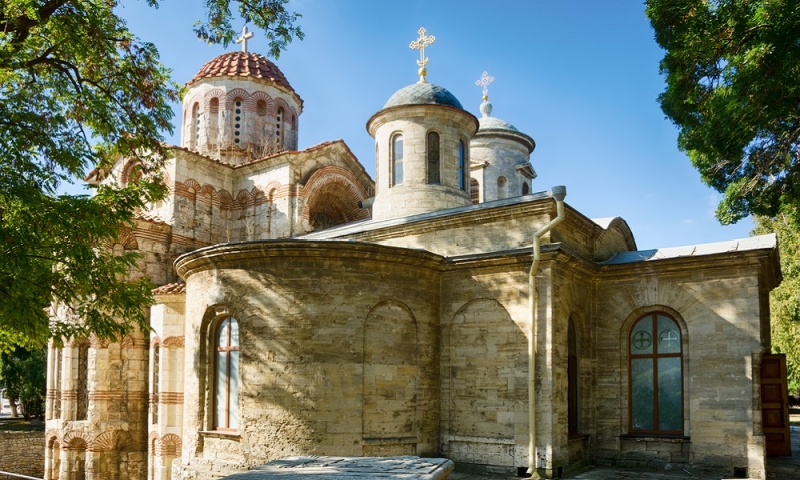
Today Tmutarakan is synonymous with a terrible distance, a remote outback. It seems as if there is no such place at all. But in the X-XII centuries, Tmutarakan was a rich principality on the southern shore of the Kerch Strait, prospering due to its favorable trading position, oil deposits and exemption from taxes.
During the reign of Catherine II, this region became part of the Russian Empire and became its outlying part. Since then it has been like this: whoever wants to say that he has a long way to go mentions Tmutarakan. And today Taman is located in this place.
Where to stay: Fort Apatur Hotel. A room with breakfast will cost 2,400 rubles per night for two.
How to get there: from Moscow to Taman you can go by train – to the Taman-Pasazhirskaya railway station, and from there by bus or car to final destination. The cost of a train ticket in September is 3,500 rubles.
Saratov, Saratov region
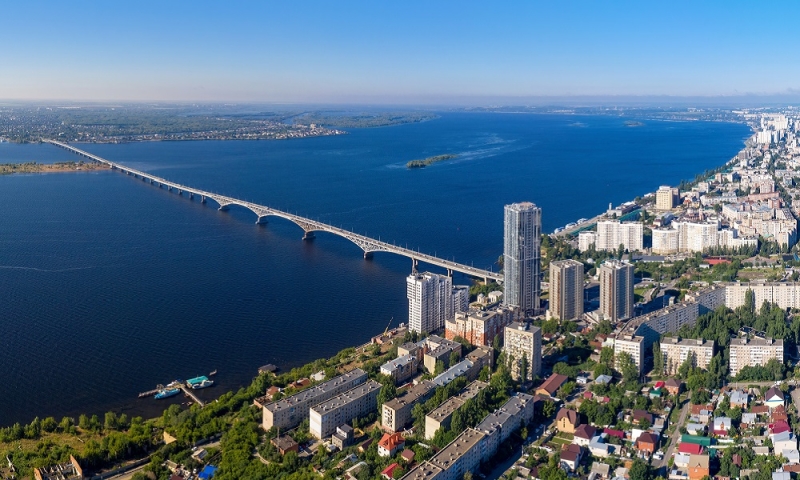
“To the village, to the wilderness, to Saratov!” – Famusov, a character in A. S. Griboyedov’s work “Woe from Wit,” threatened his guilty daughter. The punishment for love affairs was excommunication from the capital’s secular society and moving to a remote province, where the only entertainment for a young girl was embroidery. Thanks to this famous quote, today we are sending to Saratov those who need to think about their behavior.
But already at the end of the 19th century, due to the rapid development of railways and shipping, the city ceased to be considered an outright wilderness and received the informal status of “the capital of the Volga region.” Today Saratov is a large educational center, as the sculpture “The Night Before the Exam” reminds of. She depicts a student bending over an unfamiliar book.
Where to stay: Panda City Hotel. A night in a three-star hotel – 3,200 rubles.
How to get there: by plane or train from Moscow to Saratov.An air ticket for September can be purchased for 3,800 rubles one way. Traveling by train will cost 1,800 rubles. Travel time – from 14 hours.
Lukhovitsy, Moscow region
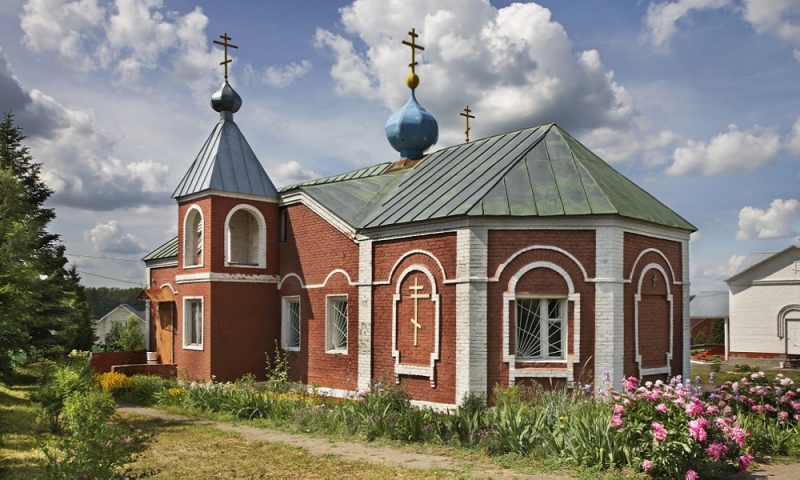
“There are three capitals in Russia – Moscow, Ryazan and Lukhovitsy!” – says a cheerful proverb. Depending on the context, Ryazan changes to another city, but Lukhovitsy never gives up its position. For a long time, the provincial village did not stand out in any way, but in the 19th century it found itself in an advantageous trading position due to its proximity to the new Moscow-Ryazan railway.
Since then, Lukhovitsy has flourished so much that in the middle of the 20th century it received the status of a city. Including because Russia’s largest aircraft manufacturing plant appeared here, where today they produce the MiG-29 fighter.
But among the people, Lukhovitsy is better known as the “cucumber capital”. Lukhovitsky cucumbers are a patented brand and one of the main sources of income for the local population. It is believed that the local unique climate guarantees unsurpassed quality of vegetables. In the 2000s, a sculpture even appeared in the city with the inscription “To the breadwinner cucumber from grateful Lukhovichi residents.”
Where to stay: at the four-star Harmony Hotel. One day’s stay in a standard room with breakfast – 3,850 rubles.
How to get there: from Moscow by bus, train or car. You can get there by bus in September from 550 rubles.*
Yoshkar-Ola, Mari El
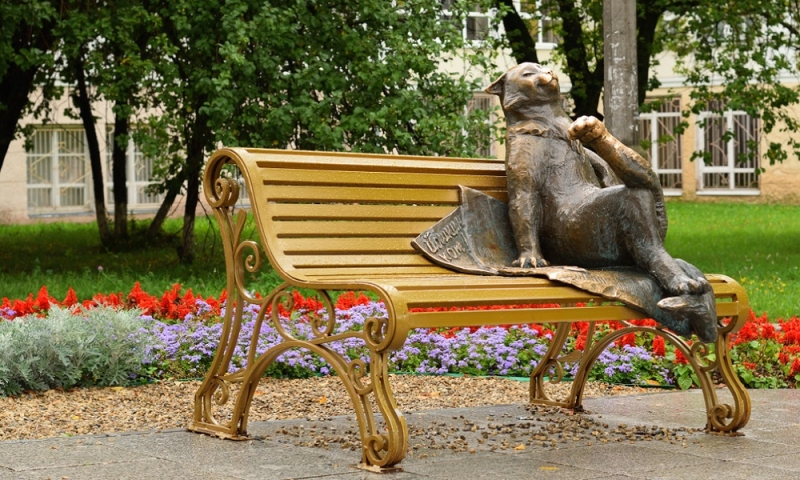
It is not known exactly who Yoshkin’s cat is. However, we often remember this animal when decent words are not enough to express emotions. The main character of the film “Love and Doves” twisted this saying into conversation so colorfully that after the film was released, viewers remembered it and instantly became popular.
Yoshkin’s cat did not stay “homeless” for long. Thanks to the consonance of the first letters, the phrase-brand was taken by Yoshkar-Ola, which in common parlance residents affectionately call Yoshka. One of the main points of attraction for tourists in the city is a monument to a contented cat, which is lounging imposingly on a bench. The adjacent place is free, and anyone can take a photo hugging him for good luck. Under the Yoshkin Kot brand, various products are produced and sold in souvenir shops – from sweets to alcoholic beverages.
Where to stay: Stone Boutique Hotel. Daily accommodation with breakfast costs 3,000 rubles for two.
How to get there: by plane or train to Yoshkar-Ola. A flight from Moscow will cost 5,100 rubles. Travel time is 1 hour 30 minutes. The train journey will take 14 hours 44 minutes, the ticket price is 1,700 rubles.
Uchkuduk, Uzbekistan
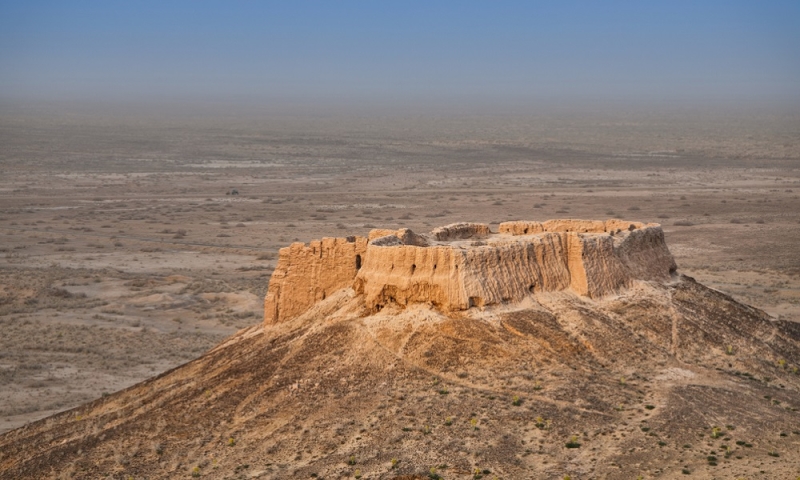
If the musicians of the Tashkent VIA “Yalla” came to Uchkuduk in winter, they certainly would not have composed their famous song “Three Wells”. Due to the piercing winds, the cold in the Kyzylkum desert becomes simply unbearable. However, the authors of the hit observed the sweltering summer heat, and Uchkuduk became known as “the lifeline in the desert.” Contrary to the text of the hit, caravan drivers never went to these disastrous places. People settled here only in the 20th century thanks to an accident: a reconnaissance expedition was looking for water in the red clay, but instead found large deposits of uranium. A city began to be built around the strategically important ore mining zone. The first builders dug three wells – for drinking, for washing and for technical water. Thanks to the song, Uchkuduk was remembered as an oasis, but in reality, those who agree to highly paid work in difficult climatic conditions go to the center of uranium and gold mining to earn money.
Where to stay: Uzbekistan Hotel in Urgench. One-night stay with breakfast – 5,000 rubles.
How to get there: by plane to Urgench, and from there by taxi or train to Uchkuduk. A flight from Moscow to Urgench in September will cost 14,350 rubles, travel time is 3 hours 30 minutes.
Tula, Tula region
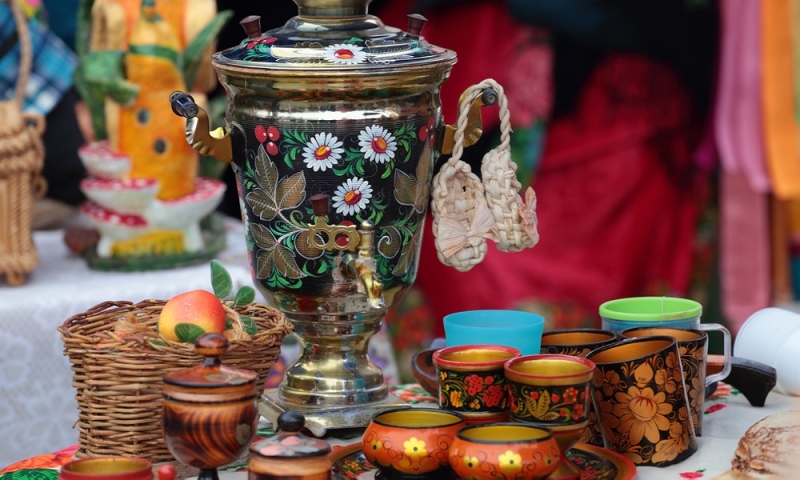
It is believed that the first Tula samovar was produced at the end of the 18th century. And already at the beginning of the next century, Tula gained fame as the samovar capital of the Russian Empire. Almost a century later, A.P. Chekhov would write in his diaries: “Going to Paris with your wife is the same as going to Tula with your samovar.” The second part of the phrase was so loved by the public that it became its own proverb. It implies that there is no point in putting in your luggage those things that are easy to find at the final destination of the trip. In an allegorical comic form, the saying is suitable not only for travel, but also for everyday situations.
Where to stay: AZIMUT Hotel. The four-star hotel is located in the very center of the city. A night’s stay costs 4,000 rubles for two.
How to get there: by train, train, bus or car. The cost of a train ticket in September is 600 rubles*, travel time is from two hours. You can get to Tula by bus in 3 hours 30 minutes.
*Prices are for September and valid at the time of publication.
